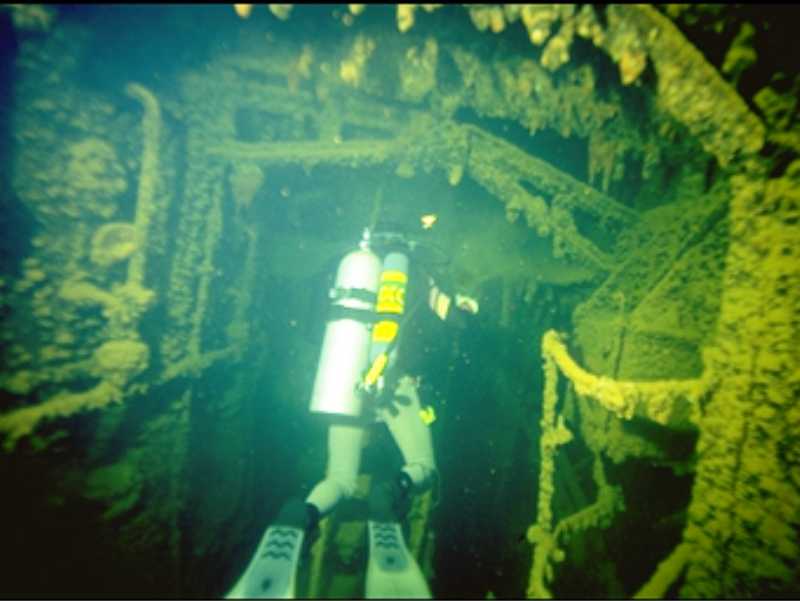SAFER LIMITS 2000
Hyperbaric WorkshopWesley Hospital, Brisbane
5-6 September 2000Report by Andrew Whitehead
Published in Dive Log Australasia
September 2000
Several divers from Absolute Scuba attended the recent hyperbaric workshop at the Wesley Hospital in Brisbane. Some of them had already been for a dry run in the chamber a few weeks before! The following were speakers at the workshop who presented with great authority on their particular specialty in the field of decompression illness (DCI) and hyperbaric treatment: -
Mr Richard Dunford Seattle, Washington Mr Robert Timmings Princess Alexandra Dr Simon Mitchell Wesley Medical Director Dr David Griffiths Townsville Mr John Lippman DAN SE Asia Pacific Dr Greg Emerson Royal Brisbane Dr Robert Barnett Princess Alexandra Dr Michael Bennett Prince of Wales Mr David King Wesley facility manager Mr Dale O’Halloran Wesley hyperbaric technician Mr Brian Marfleet WH&S Mr Rob Davis Attwood Marshall Lawyers The general consensus of the panel of speakers was that diving is a very safe recreation these days compared with other activities. This opinion is based on the number of DCI cases treated in Australia compared with the total number of dives per year. One of the main reasons for this is that most divers now use a dive computer, rather than tables or nothing at all.
It is not uncommon for people to have symptoms of DCI after diving within safe table limits. There is an element of chance in that some people are more prone to DCI than others. There is insufficient data to determine why this is the case, but there are a number of theories based on observation and experience. Gender is not a factor. Age and body weight may be contributing factors. Like they say, “There are no old, bold divers”.
One thing that was very clear is that dehydration is often a contributing factor in DCI cases. Drinking alcoholic beverages the night before, seasickness, breathing dry compressed air, swimming in cold water, to put it politely, will result in your body becoming dehydrated. In order to minimise the risk, it is very important to hydrate yourself before and after diving. That is, drink lots of water!
One useful tip was the following brew, which is a very effective hydrator: -
Orange juice 30ml
Water 60ml
Half teaspoon salt
Another contributing factor in DCI cases is exerting yourself immediately after diving. Heavy exercise can bring on symptoms despite staying within dive safety limits.
It was emphasised that immediate treatment with a high percentage of oxygen will give the victim a better chance for a full recovery. First aid treatment is to lay the victim flat, administer 100% Oxygen, and contact a diving emergency service such as DAN (1800 088 200). Consequently, it is a good idea for all divers to be trained in oxygen administration (because it is not easy) and to dive with professional dive operators (since they must always carry oxygen equipment).
Another point that was made was that the certification agencies are offering a high standard of training, however the delivery by instructors is highly variable. Many open water divers know very little about DCI and how to avoid it. A significant proportion of treated cases are open water (novice) divers or in the (so called) “advanced” category.
The audience took advantage of the panel discussions by asking many questions and enjoying the repartee. The panel of experts indicated that the attendees had demonstrating their interest in advanced diving topics and a willingness to learn, simply by being there.
The workshop was held over two nights and covered the subject of Decompression Illness quickly but comprehensively. Topics included the following:
Extreme dive profiles of Miskita Indians in South America
What is causing DCI
Pathophysiology of DCI (what happens in your body)
Signs and symptoms
First Aid measures
Importance of recording the history
Neurological Assessment
Transporting DCI patients
Therapies to assist treatment
Post treatment restriction
WH&S implications
Legal implications
As a long-term member of the Cousteau Society, I like to recall that Captain Jacques Yves Cousteau was still diving at 75!
